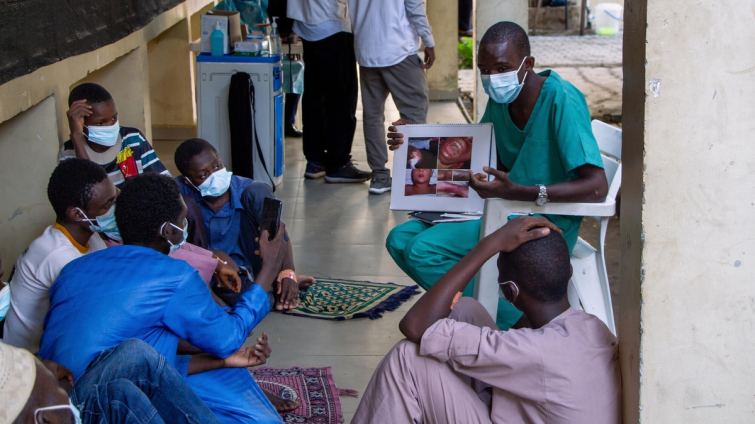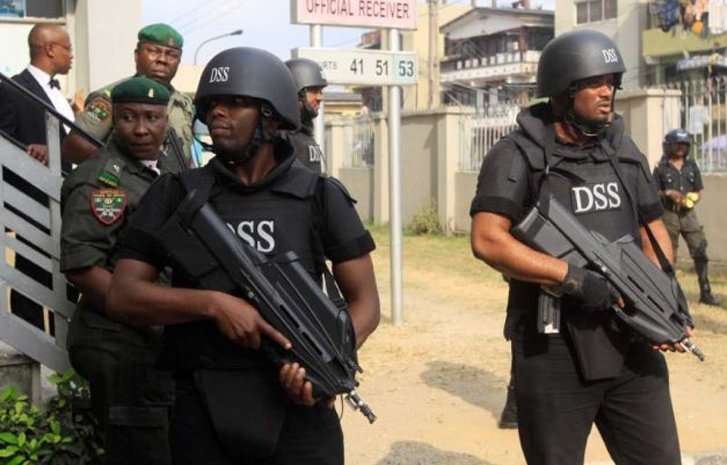
KANO, Nigeria – Not with the sirens of a public health alert or the rush of emergency teams, but in whispers from door to door, and in the silence that follows funerals. In Rano, a rural town in Kano State, four members of a single family recently died within days, victims, health officials say, of a suspected diphtheria outbreak. The shock in the town was immediate, but the official response was careful, contained and deliberately quiet — a reminder that public health is as much about trust as treatment.
For Kano, a state that once celebrated Nigeria’s global declaration of freedom from wild poliovirus in 2020, the re-emergence of polio variants and diphtheria is more than a medical setback. It is a warning that old diseases never truly disappear — they wait. Hussaini Ibrahim, writes.
And When Immunisation Systems Weaken, They Return
A senior official of the Kano State Centre for Disease Control (KNCDC), who asked not to be named because of the sensitivity of the situation, recounted the tragedy to African Health Report, (AHR):
“A month ago in Rano we recorded a fresh and tragic incident of suspected diphtheria that claimed four members of a single family. It was a devastating scene — children and adults struck in quick succession — and it left those who survived traumatised.”
He said the state deliberately avoided publicising the outbreak immediately.
“We decided to handle that case quietly at the time because of the fragile calm in the community; public panic can make an already-bad situation far worse and can hinder response efforts.
“But quiet does not mean inaction. We immediately mounted an investigation, deployed a rapid response team for case finding, contact tracing and targeted vaccination, and began risk communication with local leaders.”
The official emphasised that what is urgently needed now is support — not silence.
“What we need now is not silence but support — resources for cold-chain maintenance, more trained vaccinators who can safely reach insecure areas, and effective community engagement to counter misinformation.
“If we do not close the immunisation gaps — if we allow stock-outs, cancelled outreach days, and fear to persist — these viruses will keep finding pockets of unprotected children. That is how polio variants re-emerge and how diphtheria can sweep through a household.
“We urgently need coordinated action from state and federal authorities, security guarantees to allow vaccinators access to hard-to-reach communities, and sustained investment in our primary health system. Otherwise, more families will suffer the same loss we saw in Rano.”
Where the System is Breaking
In many communities across Kano, parents are turning up at clinics only to be told vaccines have run out. Others live too far from health facilities, or lack money for transport. Some have stopped immunising their children because they do not trust the system anymore.
In Tsanyawa LGA, a mother pointed to the nearest clinic and shook her head.
“Sometimes you go and they say there is no vaccine. Sometimes the health workers are not there. After some time, people give up.”
KNCDC Information Officer, Muhammad Dayyabu Ali, confirmed that routine immunisation coverage has weakened significantly:
“Declining vaccination rates, disruptions in services, low confidence in the health system and rising misinformation are all contributing to the resurgence. Several LGAs remain serious high-risk zones.”
Those zones are not just local problems. They are flashpoints for wider outbreaks.
Once a virus finds even a small group of unvaccinated people, it does not stay small for long.
Primary Healthcare on Its Knees
Health workers in multiple LGAs told African Health Report that many primary healthcare centres are operating with minimal staff and unreliable power supply. The cold-chain — the temperature-controlled network that keeps vaccines potent — frequently breaks down.
Some outreach vaccination days have been cancelled simply because fuel was not available for clinic generators.
One health worker in Bichi summed it up simply: “Sometimes we want to work, but the system is tiring.”
KNCDC said it deployed a Rapid Response Team to Rano after the deaths. But residents insist the delay — even if only a few days — cost lives.
And delays, in infectious disease control, are everything.
The Invisible Barrier: Misinformation
Health officials in Kano say the biggest challenge now may not be vaccines — but rumours.
In certain communities, long-running conspiracy theories claiming vaccines cause infertility to have revived. In others, political mistrust and fears of “foreign agendas” make parents hesitate.
A mother in Rano told African Health Report:
“We hear many things about these vaccines. Some people stopped taking their children because no one explained anything to us.”
In that uncertainty, viruses thrive.
A Race Against Time
KNCDC says it is working alongside the Federal Ministry of Health, the Nigeria Centre for Disease Control (NCDC), the World Health Organization (WHO) and UNICEF to:
Intensify surveillance, expand mass vaccination, strengthen routine immunisation, and rebuild trust through community engagement.
Ali stressed the urgency:
“Improving routine vaccination, strengthening disease surveillance, and restoring community trust are critical. This is not just about outbreaks — it is about preventing future emergencies.”
The Warning Kano Sends to Nigeria
Public health experts warn that Kano’s situation is not isolated. As one of Nigeria’s most populous states, with large movement across borders and trade routes, an outbreak here can spread widely — and fast.
The return of diphtheria and the re-emergence of polio variants signal deeper national vulnerabilities:
Fragile primary healthcare
Uneven immunisation coverage
Rising misinformation
Declining trust
These cracks are not unique to Kano. They exist across the country.
If Nigeria does not act decisively now, the diseases the world thought it had defeated may return — not as isolated incidents, but as epidemics.
What Must Happen Now
Health officials and community leaders agree on what is needed:
Consistent vaccine supply — no stock-outs, more trained health workers — especially in rural and insecure areas, reliable cold-chain and power systems, community-led vaccine education — delivered by trusted voices and government funding that matches the scale of the risk.
Because if vaccinations do not reach every child, the virus will.
Diseases do not disappear. They simply wait for immunity to drop.
A Quiet Return — but a Loud Warning
The deaths in Rano did not make headlines. There were no televised briefings. No emergency speeches. Just a family burying its loved ones and a community asking questions.
But public health is built on conversations that happen long before emergencies are announced.
Kano has seen what happens when silence fills those gaps.
The question now is whether Nigeria has heard the warning — before more lives are lost to diseases the world already knows how to prevent.




